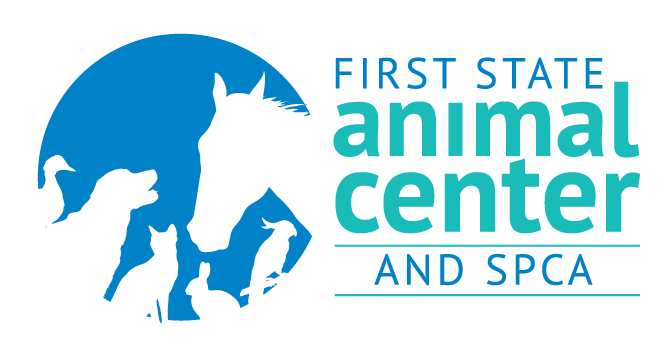First State Animal Center - SPCA accepted into the 2014 ASPCA Rachael Ray $100K Challenge - aims to save more lives with a chance to win $100,000.
Contact: Lisa S. Chase, (302) 943-6032, ext. 123, l.chase@fsac-spca.org
fKent County, DE --The First State Animal Center - SPCA (FSAC-SPCA) has been accepted into the 2014 ASPCA Rachael Ray $600K Challenge, now in its fifth and final year through the ASPCA. The animal welfare and adoption facility applied in January to be a part of the competition, and was accepted, along with 49 other shelters across the United States, through a highly competitive process.
FSAC-SPCA has an aggressive goal to save more than 600 cats and dogs in just three months during June, July and August 2014, nearly double what it did in 2013. FSAC-SPCA is one of 50 animal shelters across the United States in the competition, which is spearheaded by the renowned talk show host and celebrity chef, Rachael Ray. All of the contestants are working towards the same goal - save more animals – during the months of June, July and August 2014 – than they did over the same three-month period in 2013. Last year’s competing shelters saved more than 56,000 cats and dogs during the contest, an increase of 12,050 over the same period in 2012.
The ASPCA and Rachael Ray will award a $100,000 grand prize to the shelter contestant that achieves the greatest increase in lives saved during this three-month period. The contestant that does the best job of engaging its community members in helping to save more animals will win $25,000. Those organizations that do the best in their divisions will be eligible for between $10,000 and $25,000 in additional grants. In total, $600,000 in grant funding will be awarded for increases in animal lives saved, as well as a photo contest and general participation.
The FSAC-SPCA has a unique strategy to win which includes holding adoption events in all three counties, and going on daily speaking engagements through the state of Delaware, hopefully with adoptable cats and dogs in tow.
"We are nicely situated in a small state like Delaware, where we can be in any part of the state within one hour's drive," said J. Kevin Usilton, Executive Director. "We are calling on the entire state of Delaware to provide that community support and awareness for us to meet the Challenge. With community support, the First State Animal Center - SPCA will have a chance to win valuable grant funding from the ASPCA. If we achieve the greatest increase in lives saved compared to the other contestants, we win a $100,000 grant from the ASPCA and Rachael Ray to support our continued life-saving work. If we do the best job of engaging our community in saving more lives, we win the $25,000 Community Engagement award. Most importantly, we will adopt out more cats and dogs into their loving forever homes. " Usilton said that if the center wins the grant, it will use the monies for capital improvements.
Usilton said that the community can help by volunteering to help the center and its adoption events and at peak times when the center is busiest during the summer months, donating money, inviting center officials to come speak to civic groups, hosting events, and spreading the word about the Challenge. To learn more how to help the First State Animal Center meet this challenge, call Lisa Chase at (302) 943-6032, ext. 123, or e-mail her at L.Chase@fsac-spca.org.
All her life, Rachael Ray has been an advocate for animals and a supporter of animal welfare groups. Her love for animals and for her pit bull, Isaboo, inspired her to create a pet food called Nutrish® to raise money for animals in need. Ray donates her proceeds from the sale of Nutrish® to organizations like the ASPCA so they can implement programs like the $100K Challenge and support shelters and animal organizations around the country.
The mission of the First State Animal Center and SPCA is twofold: they protect animals from people, by prevention of cruelty and suffering, rescue of the trapped or injured, emergency medical treatment, temporary housing for homeless animals and the reduction of homeless pet overpopulation through targeted spay/neuter and education programs; and they protect people from animals through their commitment in placing only stable, safe and well-adjusted animals into homes where they will thrive while simultaneously educating the public about responsible pet guardianship.
